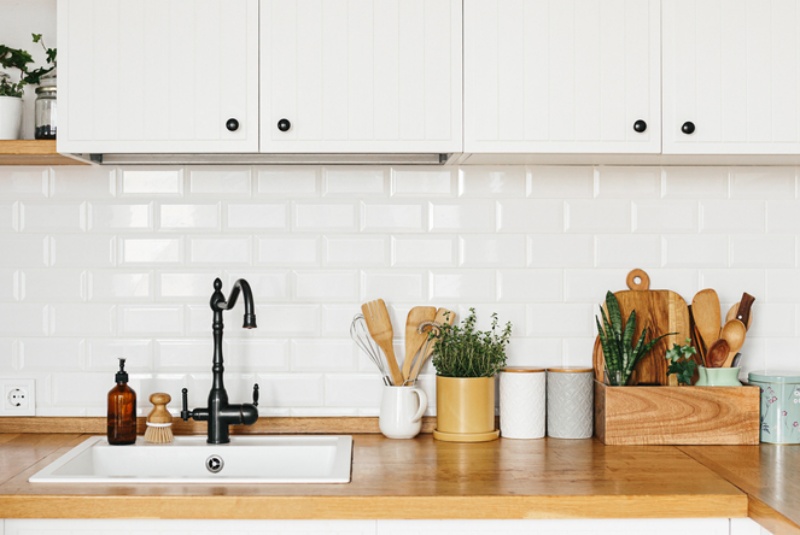As we become more conscious of the environmental impact of our daily activities, it's essential to consider how we can make our homes more sustainable. The kitchen, in particular, is an area of the house that sees a lot of energy consumption and waste production. However, with a few simple changes, we can turn our kitchen into an eco-friendly space that benefits both our planet and our health.
Here are some tips for creating an eco-friendly kitchen:
1. Reduce food waste
Reducing food waste is one of the simplest and most effective ways to make your kitchen eco-friendly. Start by planning your meals and buying only what you need. Use up any leftover ingredients and consider composting food scraps. You can also freeze leftovers for later use, rather than letting them go to waste.
2. Choose energy-efficient appliances
Energy-efficient appliances are a great investment for any eco-friendly kitchen. Look for appliances with an Energy Star rating, which means they meet specific energy efficiency guidelines. Energy-efficient appliances not only save energy and money in the long run, but they also emit fewer greenhouse gases and help reduce your carbon footprint.
3. Choose eco-friendly cookware
Choose cookware made from eco-friendly materials like cast iron, stainless steel, and glass. Non-stick cookware may be convenient, but it can emit toxic fumes when heated at high temperatures. Cast iron cookware is durable, non-toxic, and retains heat well. Stainless steel is easy to clean and doesn't react with food. Glass is safe to use and doesn't absorb flavors or odors.
4. Use sustainable cleaning products
Conventional cleaning products often contain harsh chemicals that are harmful to both the environment and our health. Look for eco-friendly cleaning products made from natural and biodegradable ingredients. Alternatively, you can make your own cleaning products using ingredients like baking soda, vinegar, and lemon juice.

5. Reduce plastic use
Plastic is a significant contributor to environmental pollution, and the kitchen is a place where we tend to use a lot of plastic. Instead of using plastic bags, opt for reusable cloth bags. Replace plastic storage containers with glass or stainless steel containers. Use a refillable water bottle instead of buying bottled water.
6. Choose organic and locally sourced produce
Organic produce is grown without harmful pesticides and chemicals, making it better for both the environment and our health. Buying locally sourced produce reduces the environmental impact of transportation, and it supports local farmers and businesses.
7. Reduce energy use
The kitchen uses a lot of energy, but there are ways to reduce energy consumption. Use energy-efficient light bulbs, turn off the lights when not in use, and use natural light as much as possible. Avoid preheating the oven unless the recipe specifically calls for it. Use a toaster oven or microwave instead of the oven for smaller tasks.
8. Choose sustainable packaging
When buying groceries, look for products with minimal packaging, or packaging that is biodegradable or recyclable. Avoid single-use plastic bags and opt for reusable bags instead. Consider buying in bulk to reduce packaging waste.
9. Choose sustainable kitchen flooring
If you're renovating your kitchen or building a new one, consider using sustainable materials for your flooring. Bamboo, cork, and linoleum are eco-friendly options that are durable and long-lasting.
10. Compost
Composting is an excellent way to reduce waste and create nutrient-rich soil for your garden. Compost food scraps and yard waste, and use the resulting compost in your garden to grow your own fruits and vegetables.
It's essential to remember that making your kitchen eco-friendly doesn't have to be an all-or-nothing proposition. Making small changes over time can add up to significant environmental benefits. Start by choosing one or two tips from this list that you feel comfortable implementing, and work your way up from there. Whether it's composting, using sustainable cleaning products, or reducing plastic use, every effort counts.
Creating an eco-friendly kitchen is achievable and can make a significant difference in reducing our impact on the environment. By making sustainable choices in the kitchen, we can create a healthier and more sustainable future for ourselves, our communities, and our planet.




